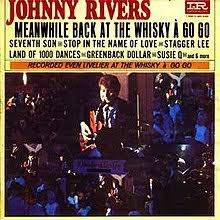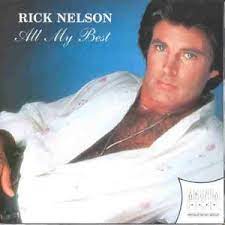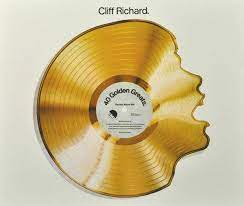Tutorial Pricing: $3.25ea OR any 10 for $10
(use code "Any10410" at checkout)
Paid Requests for $25ea
(comes with any 8 freebies -> so 9 for $25)
100's Of Free Demos & Chord Sheets
- Home
- 50s & Vegas
- Elvis Songs in the 70s
Elvis Songs In The 70s
For the Acoustic
Welcome to my Elvis songs in the 70s page where you'll find more than a dozen songs Elvis recorded in this decade. Check out the links to other Elvis pages as well as this was a large section that has now been broken down into sub-sections.
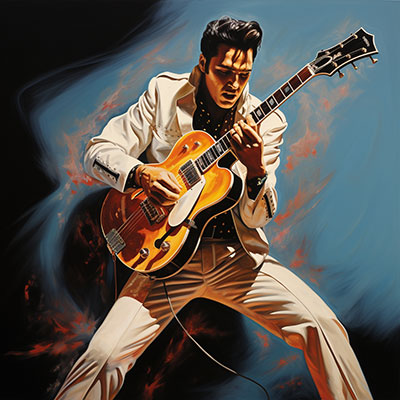
Easy Elvis Guitar Songs
Elvis Songs In The 50s
Elvis Songs From The Movies
Love Songs Of Elvis Presley
Elvis Presley Wall Art
Help yourself to the free chord sheets and demos and tips. If you'd like to purchase the full lesson tutorial, there is a link below for a small fee.
Burning LoveGood Time Charlie's Got The Blues
How The Web Was Woven
I'm Leaving
It's Impossible
I've Got A Thing About You Baby
Kentucky Rain
Moody Blue
Snowbird
The Next Step
Thinking About You
Walk A Mile In My Shoes
Washed My Hands In Muddy Water
Way Down
Elvis Songs In The 70s
Chords, Demos, Lyrics, Tutorials
Burning Love
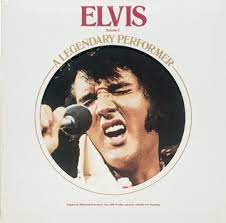
Burning Love became one of Elvis's notable hits. The song was written by Dennis Linde and was released as a single in 1972. The song was recorded in the Stax Studios in Memphis, Tennessee, during one of Presley's most creative periods.
"Burning Love" showcases a more contemporary sound compared to some of Elvis's earlier works, incorporating elements of rock, pop, and rhythm and blues. The song's catchy and energetic nature contributed to its commercial success and positive reception from both critics and fans.
"Burning Love" reached number two on the Billboard Hot 100 chart, making it one of Elvis Presley's highest-charting songs during the 1970s. It also achieved significant success internationally and remains a popular and well-remembered track in Elvis's discography. The song is often included in various compilations and collections of his music.
Play this using a Drop D tuning as you'll
find the deeper D bass note helps to fill in the song when playing this
type of rhythm. But drop D is always optional and not required. The
other chords in this song are a G, A and a Bm.
The
rhythm on this song is a steady up and down with using a typical rock
and roll strum by playing the A string on the 2nd fret in conjunction
with the D chord and the drop D note.
There is no lead work in this song, just straight rhythm.
Jump To Top
Good Time Charlie's Got The Blues
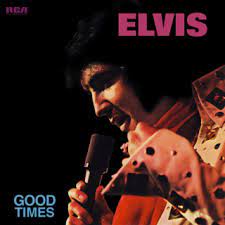
Good Time Charlie's Got The Blues was written by Danny O'Keefe and originally released by O'Keefe in 1967 as a part of his self-titled debut album. However, Elvis Presley also recorded a cover version of the song, which was included on his 1973 album "Good Times".
"Good Time Charlie's Got the Blues" is a melancholic folk and country-infused song that tells the story of a man who is feeling down on his luck and seeks solace in the simple pleasures of life. The lyrics express a sense of resignation and longing, as the protagonist reflects on his struggles and tries to find solace in the fleeting moments of joy. The song's bittersweet tone is enhanced by Elvis Presley's soulful and emotive vocal performance, which showcases his versatility as a singer beyond his signature rock and roll style.
Elvis Presley's rendition of the song received positive reviews for his heartfelt interpretation of the song. It showcases his ability to convey deep emotions through his vocal delivery, and his admiration for various musical genres beyond rock and roll. Although not as well-known as some of his other hits, the song remains a notable addition to Elvis Presley's extensive discography, showcasing his diverse musical talents and his ability to connect with listeners on an emotional level.
Two singles were released from this album but this song was not one of them unfortunately.
Played in standard tuning with a steady down up down rhythm pattern and with some riffs blended in along with a bit of picking. The chords you'll need are G, Cmaj7 and a D.
Jump To Top
How The Web Was Woven
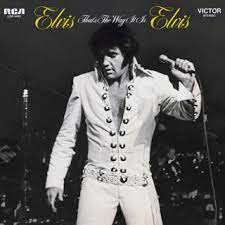
How the Web Was Woven was written by English songwriters Clive Westlake and David Most and was originally released by English singer Jack Jersey in 1970. Elvis recorded his own version of the song and included it on his 1970 album "That's The Way It Is."
Elvis's rendition of "How the Web Was Woven" showcases his powerful vocals and emotional delivery. While the song wasn't released as a single by Elvis, it has become a fan favorite and is often appreciated for its introspective and melancholic tone.
Since its initial release, "How the Web Was Woven" has been covered by various artists, but Elvis's version remains one of the most well-known and beloved interpretations of the song.
Jump To Top
I'm Leaving
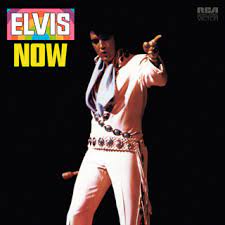
I'm Leaving was written by Michael Jarrett and was first released by Elvis in 1971. The song is often referred to as "The Sound of Your Cry" as it features the line prominently in the chorus.
"I'm Leaving" was included on Elvis's album titled "Elvis Now," released in 1972. The song showcases Elvis's powerful vocals and heartfelt delivery, reflecting themes of heartbreak and parting ways. It is a soulful ballad that resonates with many listeners.
This track was never released as a single but it remains a notable track in Elvis's discography. The song has been appreciated for its emotional depth and Elvis's passionate interpretation. It adds to the diverse range of musical styles and themes that Elvis explored throughout his career.
Jump To Top Of Elvis Songs In The 70s
It's Impossible
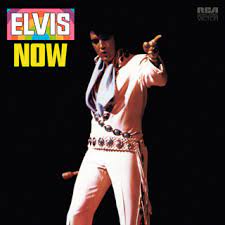
It's Impossible was originally titled "Somos Novios," and was written by Armando Manzanero with English lyrics by Sid Wayne. Elvis recorded his version of the song in 1972.
"It's Impossible" was included on Elvis's album titled "Elvis Now," which was released in 1972. The song showcases Elvis's tender and emotive vocals, conveying the bittersweet nature of love and longing.
While "It's Impossible" was not released as a single by Elvis, it remains a notable track in his discography. The song has been appreciated for its heartfelt rendition and Elvis's ability to bring out the emotional depth of the lyrics.
"It's Impossible" has also been covered by various artists, but Elvis's version stands as a beloved interpretation of the song. It adds to the diversity of his musical repertoire, demonstrating his versatility in tackling different genres and capturing the essence of the songs he recorded.
Jump To Top
I've Got A Thing About You Baby
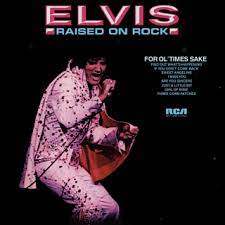
I've Got a Thing About You Baby is a song that was written by Tony Joe White and was released by Elvis in 1973. The song has a bluesy and soulful feel, showcasing Elvis's versatility in various genres.
"I've Got a Thing About You Baby" was included on Elvis's album titled "Raised on Rock/For Ol' Times Sake," which was released in 1973. The song received positive reviews and was well-received by fans.
While "I've Got a Thing About You Baby" was not released as a single, it remains a notable track in Elvis's discography. It highlights his charismatic vocals and incorporates elements of rock, soul, and R&B.
The song has
also been covered by other artists over the years, but Elvis's version
stands as one of the notable interpretations.
Jump To Top
Kentucky Rain
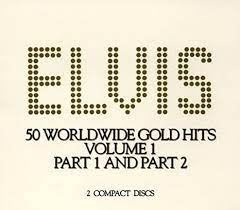
Kentucky Rain
is a popular song that Elvis recorded in 1970. It was written by Eddie
Rabbitt and Dick Heard, and it was released as a single by Elvis Presley
in January 1970, peaking at #3 on the US country charts.
It's a country-infused ballad that tells the story of a man searching for his lost love in the pouring rain in Kentucky. The song's narrative is filled with longing, heartbreak, and a sense of desperation as the protagonist tries to find his beloved. Elvis Presley's soulful and emotive vocals add depth and emotion to the song, capturing the pain and yearning of the lyrics.
As for a music video, there is indeed an official music video for "Kentucky Rain". The video was filmed in 1970 as part of the documentary film "Elvis: That's the Way It Is," which chronicles Presley's return to live performances in Las Vegas. The video features footage of Presley performing the song on stage, intercut with scenes of him traveling and singing in various locations. It captures Presley's charismatic stage presence and showcases his powerful vocal performance of "Kentucky Rain"
The rhythm in the beginning of this song is a combo of downstrokes and arpeggio note picking as you move through the intro chords. Once the singing kicks in you'll play a down down up down up down up and repeat that pattern. Or you can simply play a down up down up pattern and that will still work.
This one has a bunch of chords and they include Cmaj7, Fmaj7, Gsus, G, C, F, D, D7, Am, Dm, Em and a G6 but no lead.
Jump To Top Of Elvis Songs In The 70s
Moody Blue
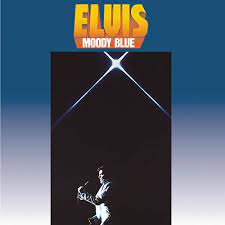
Moody Blue is a track from the last album from Elvis of the same name. It peaked at #1 in the US on the country charts.
Jump To Top
Snowbird
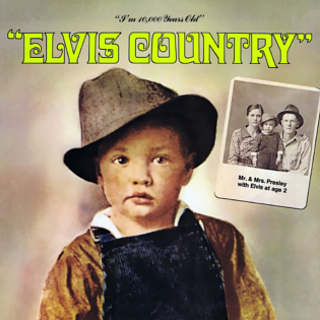
Snowbird was written by Gene MacLellan and recorded by Anne Murray back in 1970. Elvis liked the song and recorded his version for the album Elvis Country (I'm 10,000 Years Old). The song was a hit for Anne Murray but Elvis never released his version as a single.
Jump To Top
The Next Step
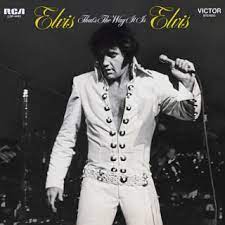
The Next Step is a track on the album "That's the Way It Is."
"Elvis: That's the Way It Is" is a live album by Elvis Presley, released in 1970. The song "The Next Step" is featured on this album, showcasing Elvis's live performances during his Las Vegas concerts in 1970.
The album captures Elvis's energetic and captivating stage presence, with "The Next Step" being one of the tracks that contribute to the overall experience.
Jump To Top Of Elvis Songs In The 70s
Thinking About You
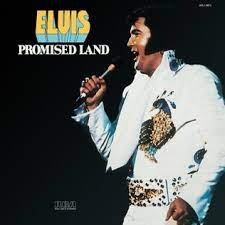
Thinking About You is a track on his album "Promised Land."
"Promised Land" is an album by Elvis Presley released in 1975, and the song "Thinking About You" is included on this album.
The track showcases Elvis's vocal prowess and his ability to convey emotion through his singing.
Jump To Top
Walk A Mile In My Shoes
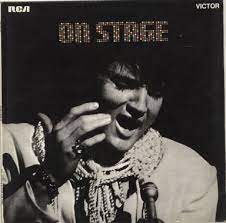
Walk a Mile in My Shoes is a song written by Joe South and originally released by South himself in 1970. Elvis covered the song and included it on his live album titled "On Stage" released in 1970.
Elvis's version of "Walk a Mile in My Shoes" is a powerful and soulful rendition that showcases his vocal range and emotional delivery. The song's lyrics emphasize empathy and understanding, urging listeners to put themselves in someone else's shoes before passing judgment. It aligns well with Elvis's ability to connect with his audience through his performances.
"On Stage" features live recordings from Elvis's performances in Las Vegas in 1969 and 1970. "Walk a Mile in My Shoes" stands out as one of the standout tracks on the album and remains a popular song in Elvis's discography.
Jump To Top
Washed My Hands In Muddy Water
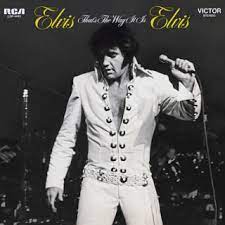
Washed My Hands in Muddy Water was written by Joe Babcock and released by Elvis in 1970. The song was included on his studio album titled "That's the Way It Is," as well as on various compilation albums.
Elvis's version of "Washed My Hands in Muddy Water" is a bluesy and soulful track that showcases his vocal prowess. The song tells a story of a character who finds himself in trouble and is trying to wash away the stains of his past actions.
"That's the Way It Is" is a critically acclaimed album that features a mix of studio recordings and live performances from Elvis's shows in Las Vegas. "Washed My Hands in Muddy Water" is among the standout tracks on the album, demonstrating Elvis's versatility in various musical styles.
Jump To Top
14. Way Down
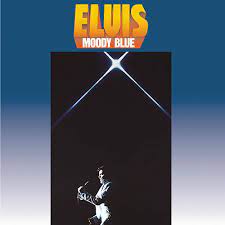
Way Down was one of Elvis's last recorded songs before his death in 1977.
"Way Down" was released as a single in 1977 and also appeared on his album titled "Moody Blue."
The song became a posthumous hit for Elvis, reaching the top of the Billboard Hot Country Singles chart and the top 20 on the Billboard Hot 100 chart.
Jump To Top Of Elvis Songs In The 70s
Thanks for stopping by my Elvis songs in the 70s page and I hope you found the info listed here helpful and useful.
If you liked this Elvis songs in the 70s page you might also like ... (click images)
Best Elvis Songs Documentary
Top Hits Of The 50s
